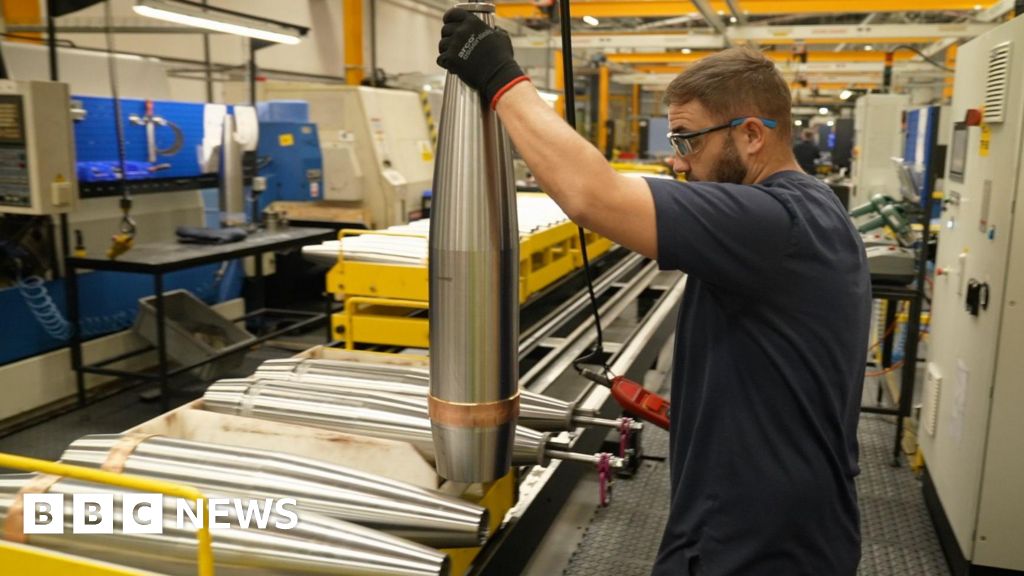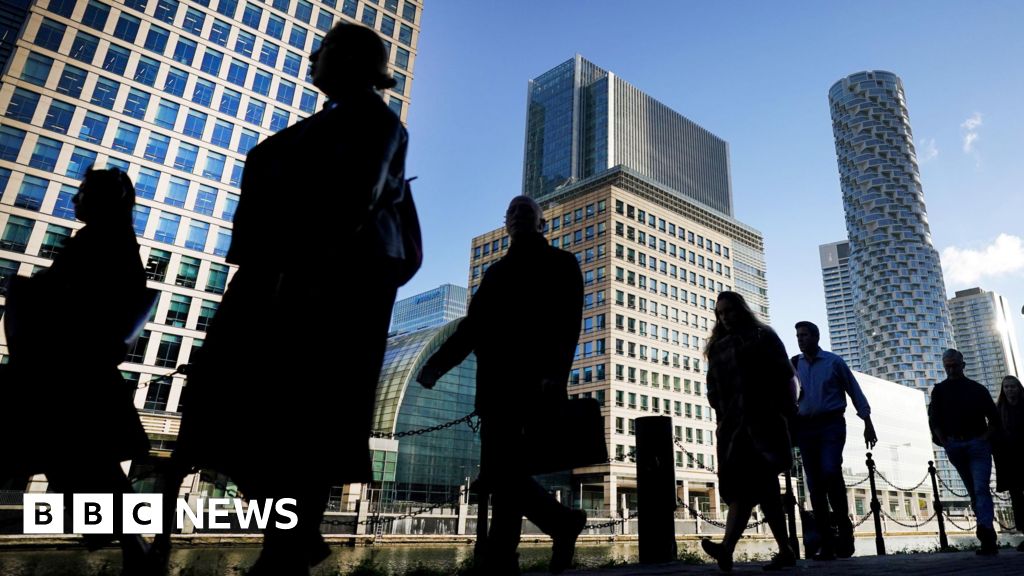ARTICLE AD BOX
By Simon Jack
Business editor
image source, Getty Images
At least four of the smaller UK energy companies are expected to go bust next week amid soaring wholesale gas prices.
Industry sources have told the BBC that four firms have asked larger players to bid to take over the supply to one million customers.
The price rise has left some companies unable to provide their customers with the energy they have paid for.
Industry rules mean supplies will continue for affected customers, and they will not lose money owed to them.
The new company is also responsible for taking on any credit balances the customer may have.
But paying that credit out to customers is a further disincentive for companies to take on new business.
Edinburgh-based People's Energy supplies gas and electricity to about 350,000 homes and 1,000 businesses, while Dorset-based Utility Point has 220,000 domestic customers.
At the beginning of 2021 there were 70 energy suppliers in the UK. Industry sources say there may be as few as 10 left by the end of the year.
But the Department for Business, Energy & Industrial Strategy said on its website: "While we are not complacent, we do not expect supply emergencies this winter."
What to do if your energy supplier goes bust
image source, Getty Images
- Customers will still continue to receive gas or electricity even if the energy supplier goes bust. Ofgem will move your account to a new supplier but it may take a few weeks. Your new supplier should then contact you to explain what is happening with your account
- While you wait to hear from your new supplier: check your current balance and - if possible - download any bills; take a photo of your meter reading
- If you pay by direct debit, there is no need to cancel it straight away, the Citizens Advice Bureau says. Wait until your new account is set up before you cancel it
- If you are in credit on your account, your money is protected and you'll be paid back. If you were in debt to the old supplier, you'll still have to pay the money back. The new supplier should contact you to arrange a payment plan
- Once you have been informed of your new supplier, make sure you're on the best tariff for you. You can switch if you're not happy with your new supplier or tariff without any penalties, but don't do this until the account has been moved over.
Many smaller companies have not insured - or hedged - their exposure to rapidly rising prices and some of the ones that have are cashing in that insurance now to survive - leaving them vulnerable to further shocks.
The end of summer is the time of year when credit balances are at their highest as customers have been paying their usually monthly amount but not using much energy for heating their homes.
Ofgem may have to allow the cost of those balances to be spread across the industry adding hundreds of millions of pounds to energy bills through industry wide levies.
Under normal circumstances there is a competitive auction process with the company offering the lowest energy price being rewarded with the additional customers. That is not the case in current market conditions.
The energy price cap - the maximum price suppliers can charge customers on a standard tariff - is also rising.
As one industry executive put it: "With energy prices having rocketed, and the energy price cap already having been set for this year, no one is that keen to take on new business. The cap is now the cheapest price in the market."
When this has happened in the past, the companies involved have failed and Ofgem has asked larger players to bid to take on the new customers.
That process is usually fairly competitive but as one source told the BBC - that's not the case this time.
image source, Getty Images
Business Secretary Kwasi Kwarteng is talking to suppliers and operators to hear how wide-reaching the impact of surging prices could be on companies and households.
High global demand, maintenance issues at some gas sites and lower solar and wind output are blamed for the rise.
Mr Kwarteng has been having individual calls with some of the top suppliers and will convene a meeting on Monday morning which will include officials from infrastructure operator National Grid and Ofgem.
One industry source said: "Kwasi gets it. He realises how serious this but the price of gas is a global problem made worse in the UK by a fire at one of the interconnectors that imports energy from Europe at moments of supply stress."
Additional reporting by Alex Kleiderman

 3 years ago
57
3 years ago
57








 English (US) ·
English (US) ·